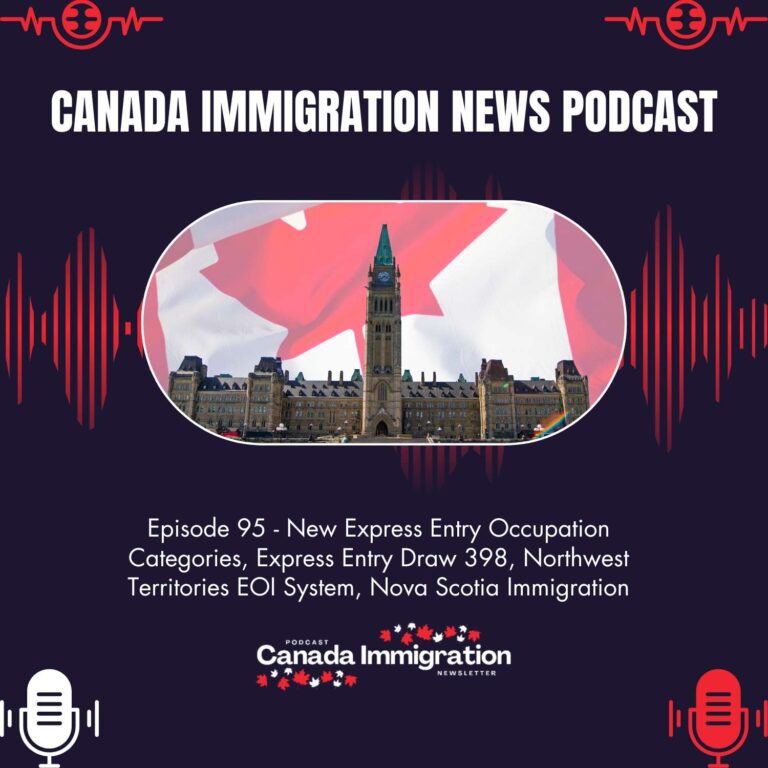Immigration Announcement
Why Bill C-2 Raises Concerns About Mirroring US Immigration Policies in Canada

Immigration has always been a key part of Canada’s growth story. People from all over the world look at Canada as a safe, fair, and welcoming place to build a new life. But recently, a new bill has entered the spotlight and not for reasons that inspire confidence.
Bill C-2 raises concerns about mirroring US immigration policies, especially in how it treats border security and irregular migration. The bill is officially called the Strong Border, Safe Communities Act, and while its name sounds like something everyone would support, many experts and advocates are worried.
The core concern? Canada is moving away from its balanced and humanitarian immigration approach and leaning into the kind of enforcement-heavy strategy the U.S. has used in recent years.
What Is Bill C-2, and Why Are People Worried?
Bill C-2 introduces several significant changes to how Canada handles irregular immigration and border control. The bill gives more authority to border officers, adds advanced surveillance, and restricts people who cross the border outside official ports of entry, even if they’re seeking asylum.
Here’s why critics are raising red flags:
- Focus on Enforcement: The bill treats irregular migration more like a threat than a human issue. That’s a major shift from Canada’s usual tone.
- Increased Detentions: It allows for longer and broader use of detention centers for people arriving irregularly.
- Surveillance Expansion: There’s concern about privacy and how far-reaching these technologies will be.
This approach mirrors policies seen in the U.S., where border control and immigration are often handled with force, detention, and restriction, not care or compassion.
Canada Still Offers a More Balanced Approach
While the direction of Bill C-2 has caused worry, it’s important to remember that Canada is not the United States. The broader Canadian immigration system is still strong, organized, and built on fairness.
Let’s look at what still makes Canada a top destination:
Points-Based System
Unlike many other countries, Canada uses a merit-based approach. Applicants are chosen based on skills, education, work experience, and language ability, not just where they’re from.
Strong Pathways to Permanent Residency
There are several programs for newcomers:
Human-Focused Refugee Programs
Canada still leads the way in offering protection to people fleeing danger and conflict. The country has a structured, transparent asylum process that supports people who arrive through legal channels.
Bill C-2 Raises Concerns About Mirroring US Immigration Policies, But Here’s What’s Different
To help clarify how Canada’s system stands apart, take a look at this side-by-side comparison:
| Area | Canada | United States |
| Policy Tone | Immigration as nation-building | Immigration as national security issue |
| Asylum Processing | Legal process with oversight | Often delayed, politicized, and restrictive |
| Detention Use | Limited, case-by-case basis | Widely used, often for months |
| Entry System | Merit-based (points) + humanitarian programs | Family chain + lottery + sponsorship-heavy |
| Path to Citizenship | 3–5 years after PR | 5+ years, complex and expensive |
| Cultural Attitude | Multicultural and accepting | Often divided, politically sensitive |
What Should Future Immigrants Do Now?
If you’re someone planning to move to Canada, this new bill might make you pause, but it shouldn’t stop you.
Here’s what you can do to stay on track:
- Stay Informed: Follow updates directly from IRCC and official government websites.
- Use Legal Pathways: Regular immigration channels remain strong and are unaffected by Bill C-2.
- Work With Experts: Use certified immigration consultants who understand current policies.
- Build a Strong Profile: Focus on education, language skills, and relevant work experience.
Remember, the Canadian immigration path is still wide open to those who are prepared.
Canada Is Still a Country of Opportunity
Yes, Bill C-2 raises concerns about mirroring US immigration policies, but it doesn’t mean Canada is shutting its doors. The bill may reflect new security priorities, but Canada’s heart and its immigration values remain rooted in fairness, opportunity, and growth. For professionals, families, and students around the world, Canada still represents a better future. And that’s not changing anytime soon.























